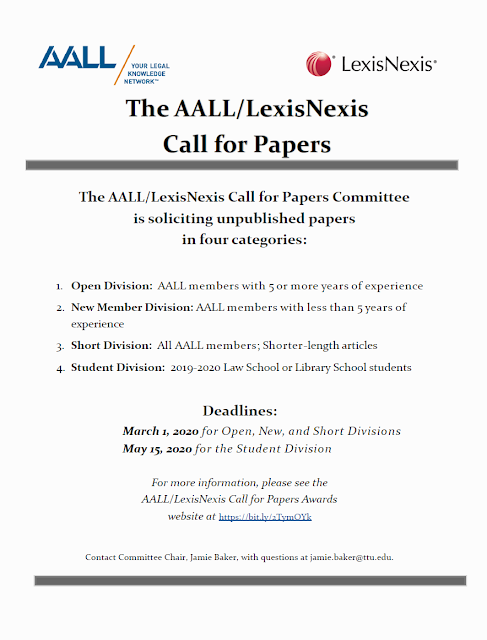Legal Research: Knowing When to Stop
Beginning researchers often ask, "How do I know when I'm done?"
This is a legitimate question because legal research can send you down many rabbit holes with seemingly endless resources to sort through. The University of San Francisco School of Law put together a wonderful research guide on point.
Here are a few good indicators that you've reached the end of your research project:
What if you're not finding authorities that address your research issue?
If research hasn't yielded any results after 30-45 minutes, it may be time to reevaluate your research strategy. Think comprehensively and creatively. Research broader rules, analogous facts or doctrines, and⁄or the law of other jurisdictions.
Make sure you are:
Consult a librarian.
This is a legitimate question because legal research can send you down many rabbit holes with seemingly endless resources to sort through. The University of San Francisco School of Law put together a wonderful research guide on point.
Here are a few good indicators that you've reached the end of your research project:
- You've found the answer. Sometimes — this is rare — you will quickly find the authoritative law that applies to your fact pattern. Be sure to Shepardize or KeyCite to check to see if your sources are still good law.
- You keep finding the same primary authority no matter which research method you use or which sources you consult. It's usually a good idea to double-check your research by checking two or three sources on the same topic to see if they all cite to the same authority. When you've done thorough research, and you keep turning up the same citations no matter where or how you look, that's a sign that you've reached the foundational cases on point. Again make sure to Shepardize or Keycite.
- Your project deadline is fast-approaching. Remember that the best research is pointless if you don't leave enough time to write the paper or to tell the client or assigning attorney what you've found.
What if you're not finding authorities that address your research issue?
If research hasn't yielded any results after 30-45 minutes, it may be time to reevaluate your research strategy. Think comprehensively and creatively. Research broader rules, analogous facts or doctrines, and⁄or the law of other jurisdictions.
Make sure you are:
- applying a variety of research techniques
- using both primary and secondary sources
- using both print and online sources
- consulting resources from different publishers or vendors (remember that Lexis and Westlaw offer a lot of the same primary sources (cases, statutes, regulations, etc.), but the secondary sources available on each system, like treatises and practice guides, tend to not overlap very much.)
Consult a librarian.


Comments
Post a Comment